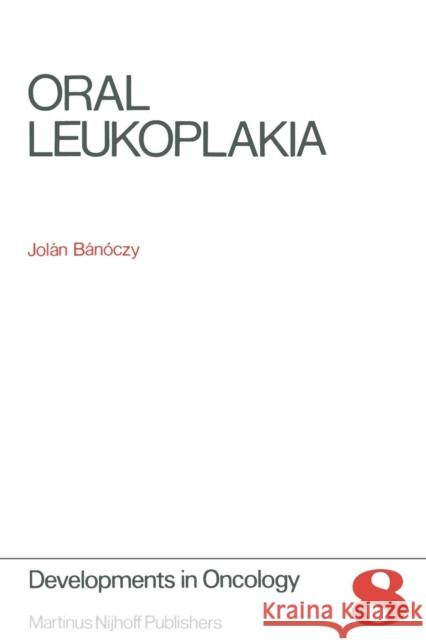Oral Leukoplakia » książka
Oral Leukoplakia
ISBN-13: 9789400975668 / Angielski / Miękka / 2011 / 232 str.
Oral Leukoplakia
ISBN-13: 9789400975668 / Angielski / Miękka / 2011 / 232 str.
(netto: 555,86 VAT: 5%)
Najniższa cena z 30 dni: 578,30 zł
ok. 20 dni roboczych.
Darmowa dostawa!
Clinical and pathological observations have unequivocally indicated an increase in the incidence of malignant neoplasia during the last two decades. Despite important advances in surgery, radiotherapy and chemotherapy, mortality from tumours still tends to increase. Cancer research has therefore concentrated not only on early diagnosis and therapy but also, in line with recent trends in medical science, on the prevention of oncogenesis. One effi- cient prophylactic approach is the treatment of preblastomatoses, which include the preneoplastic lesions of the mouth. The most frequent oral pre- cancerosis, leukoplakia, has been studied extensively during the last 20 years with regard to its pathogenesis,clinical course,and response to therapy. In Hungary, studies of oral leukoplakia have a century-long tradition. The term leukoplakia was coined by the Hungarian dermatologist Ern/) Schwimmer who recognized the precancerous nature of the condition and its relationship to tobacco smoking exactly 100 years ago. In the middle of this century another Hungarian scientist, Karoly Balogh established that most leukoplakias have two stages, - reversible and irreversible - and that early lesions may heal spontaneously after the elimination of irritational factors. The incidence of leukoplakia in random population groups was determined for the first time in the world by the Hungarian investigator Pal Bruszt, and reported to be 3.6 %. Subsequent studies in other countries confirmed a range of 0.2-8.1 %, depending on geographical and environ- mental conditions, way of life, and relevant habits.











